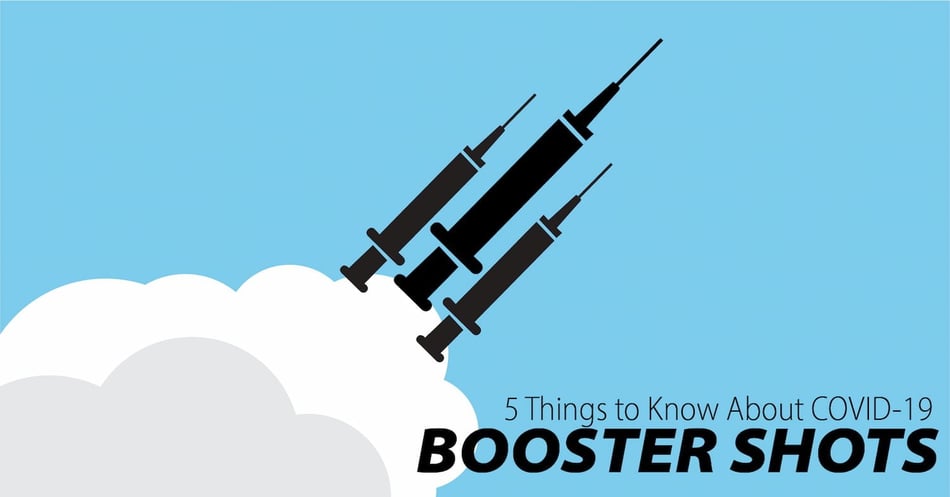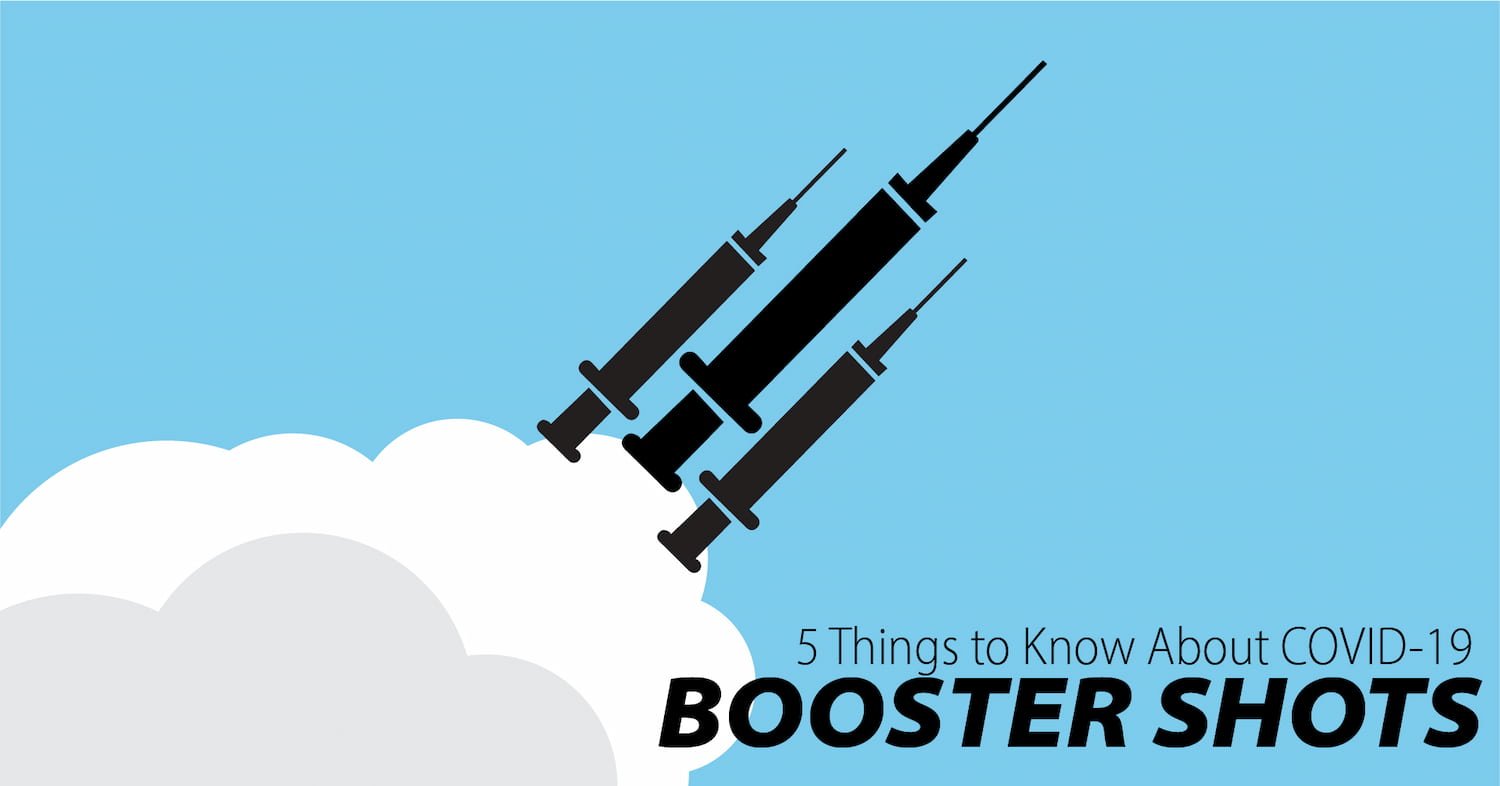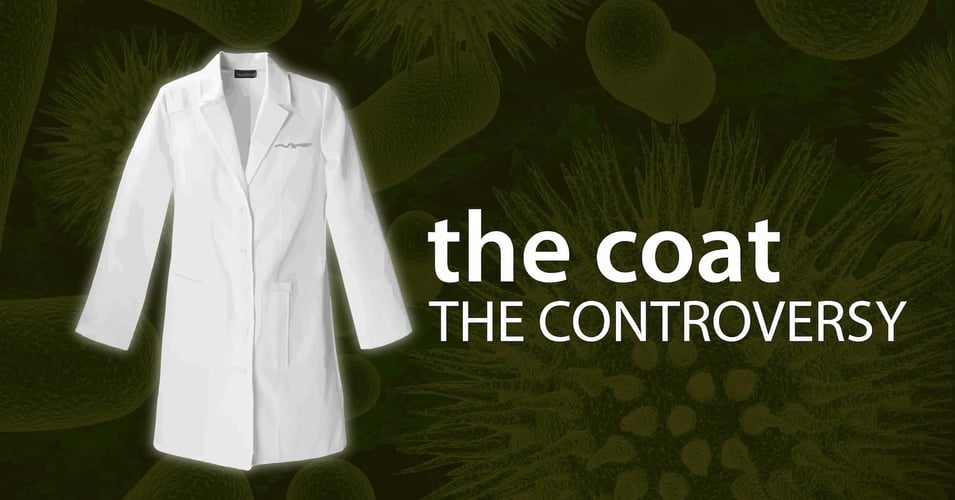5 Things to Know About COVID-19 Booster Shots

 Even as our nation struggles to achieve herd immunity from COVID-19, talks are beginning about the need for a booster vaccine shot. The possible need for an additional dose to strengthen immunity was always a consideration, but now that millions of individuals have been inoculated over the span of many months, the data tells a more complete story. In today's post, we'll go over 5 things you need to know about this discussion so that you can know if or when to get your booster shot.
Even as our nation struggles to achieve herd immunity from COVID-19, talks are beginning about the need for a booster vaccine shot. The possible need for an additional dose to strengthen immunity was always a consideration, but now that millions of individuals have been inoculated over the span of many months, the data tells a more complete story. In today's post, we'll go over 5 things you need to know about this discussion so that you can know if or when to get your booster shot.
#1 Booster shots have always been a part of vaccination. In fact, you may remember getting your "booster shots" as a child, or getting them for your children. Today, children receive booster shots - up to five in some cases - for diphtheria, hepatitis, polio, measles, mumps, and rubella. Some adults who are travelling to certain parts of the world where some diseases are still prevalent may be advised to get a booster shot for additional protection.
#2 Booster shots allow the body to prepare a stronger immune response. Immunity through vaccination requires that the body's immune system learn about the pathogen before becoming exposed to it. Initial shots stimulate the humoral immune system, that is, the production of pathogen-specific antibodies that attach themselves to virus particles and infected cells and mark them for destruction. While the first dose may also accomplish the following level of protection, it's the second dose, the booster, that stimulates the "heavy armor" from the T-cell response. This cell-mediated immune response produces T-cells which kill virus particles as well as infected and damaged cells. The booster shot strengthens this response even further, ensuring that the body produces the memory cells (both B-cells and T-cells) that will persist for years and result in a very fast immune response should the individual get exposed to SARS-CoV-2.
#3 Some people need a third dose + booster, while others just need a booster. What is the difference between a third dose and a booster? Timing. For some people with weaker immune systems, the initial protection is not sufficient with two doses; a third dose is required 28 days after the second dose. For the general public, a booster shot is required 8 months after the second dose. In each case, the dose is the same, the only thing that varies is the timing.
#4 If you had COVID-19, you still need the vaccine, but your immune response will be stronger after just one dose. Studies show that the individuals who had COVID-19 already have T-cells present in their bloodstreams, and the vaccine provides the additional stimulus to have enough to protect from future exposure. Individuals who have not had COVID-19 require the two doses at a minimum to produce the T-cells, while the booster ensures their production.
#5 Booster shots allow for tweaks to accommodate new variants. The new mRNA vaccines allow for tweaks in the "recipe" to accommodate for new virus variants. This is particularly important with SARS-CoV-2, which continues to mutate into variants of concern. Because of the efficient way this vaccine is created and produced, its design can be altered to target new variant quickly and easily. In this way, booster shots can provide additional protection as well as targeted protection.
We hope this post has clarified some important information about COVID-19 booster shots. Please share this information with your friends and family as we all encourage our communities to get vaccinated and do our part to stop the spread of SARS-CoV-2.
![EOScu Logo - Dark - Outlined [07182023]-01](https://blog.eoscu.com/hubfs/Eoscu_June2024/Images/EOScu%20Logo%20-%20Dark%20-%20Outlined%20%5B07182023%5D-01.svg)




